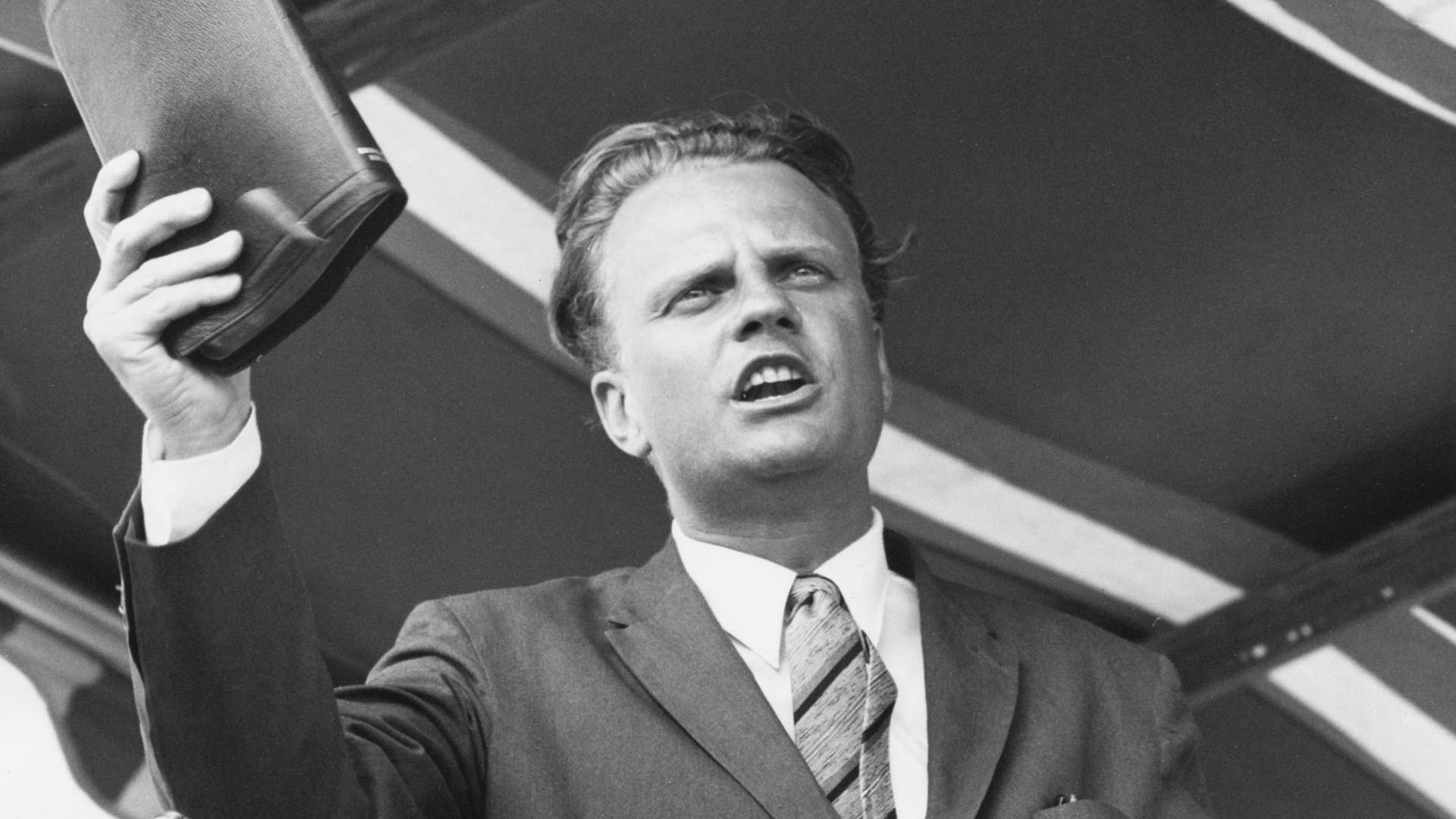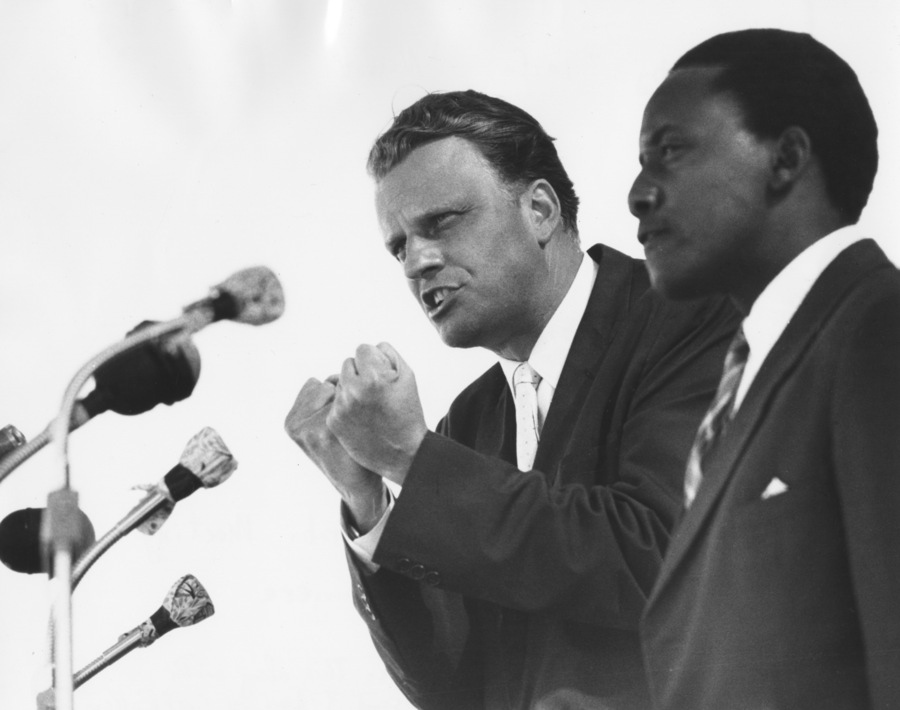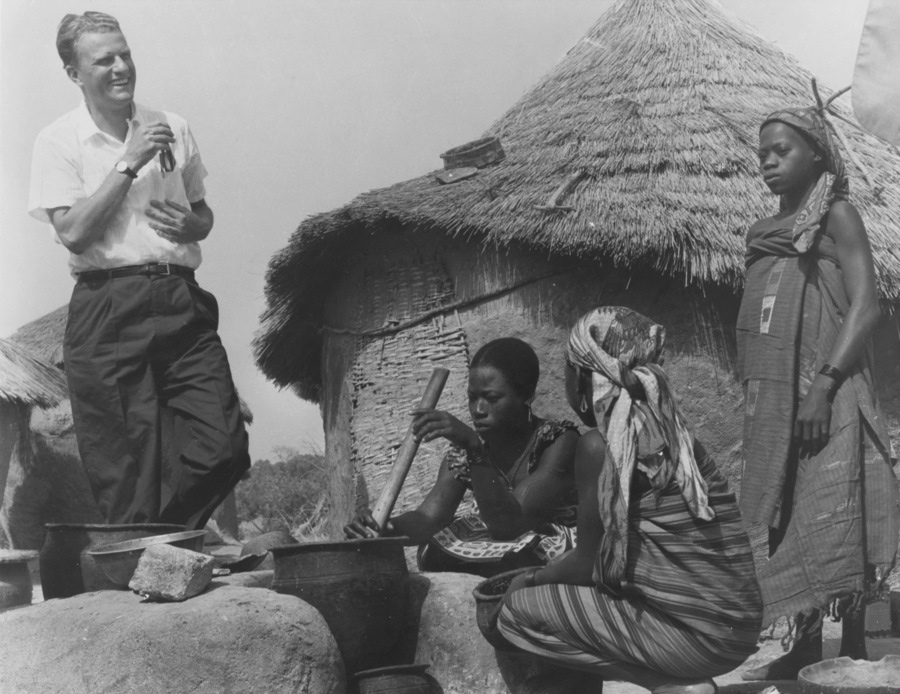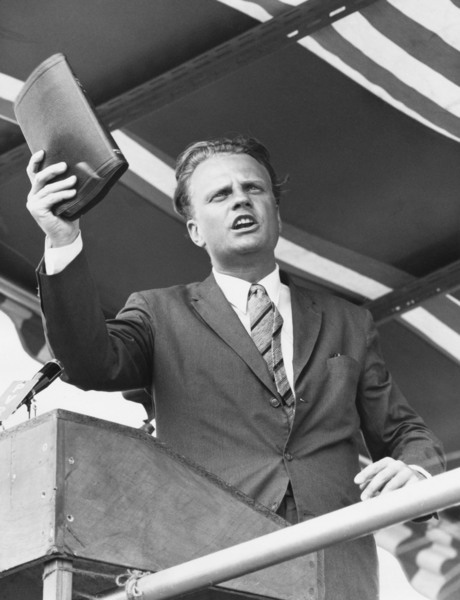
Besides Billy Graham’s unprecedented impact as an evangelist in the United States, he also profoundly influenced international missions in a way many Christians may not realize, Southern Baptist international missions leaders said. Graham, 99, died Feb. 21, 2018, in North Carolina.
Not only did Graham preach in person to large gatherings in more than 180 countries, but for 40 years he led in organizing international conferences on missions and evangelism that introduced the concept of “unreached people groups” that today lies at the heart of global strategy.
And the simple fact those meetings solicited representation from many countries — not just traditional mission senders in the West — drew Christian groups from less-developed countries of Asia, Africa and Latin America into their own global mission undertakings.

Besides Billy Graham’s unprecedented impact as an evangelist in the United States, he also profoundly influenced international missions in a way many Christians do not realize. (IMB Photo)
As in the United States, Graham had a profound influence globally as an evangelist, said IMB President David Platt.
“In his life and ministry, Billy Graham shaped so much of the way we view international missions today,” Platt said. “He united the global church around the gospel and mission in unprecedented ways. In his preaching across multitudes of countries, he showed the power of the gospel to transcend cultures. At the same time, the Lord used him to open our eyes to the places in the world where the gospel has not yet gone. His legacy carries on in the lives of men and women throughout the IMB who are doing today what Billy Graham did all of his life: sharing the simple gospel of Jesus Christ and inviting people to believe in Him for eternal life.”
Vision of unity
Graham had a vision of uniting evangelical Christians all over the world in the task of global evangelization. A series of “world congresses” on evangelism began in 1966 in Berlin with a gathering of 1,200 delegates from more than 100 countries. Other conferences followed, and a 1974 congress in Lausanne, Switzerland, drew about 2,700 participants from more than 150 countries.
“Billy Graham showed us that the good news of Jesus’ life, death, and resurrection is worth proclaiming over and over again wherever, whenever, and to whomever we can.” —David Platt
Out of that meeting grew the “Lausanne Movement,” which has sought to bring the gospel mission to bear on a rapidly changing world filled with turmoil. Congresses continued to convene during the next four decades in different locations. The understanding of missions was refined, higher levels of international coordination were achieved, and a wide range of issues were addressed, from Christian witness in various segments of society, to cultural challenges, to topics such as creation care and bioethics. Graham used the 1974 Lausanne conference to share a deep burden that evangelical Christianity had lost a key understanding of Jesus’ “Great Commission” mandate to make disciples, recorded in Matthew 28.

Billy Graham’s Lausanne Movement introduced the concept of “unreached people groups” that today lies at the heart of global missions strategy and drew “Two-Thirds World” Christian groups into their own global mission undertakings. (IMB Photo)
Though not officially involved at the Lausanne conference, Southern Baptists eventually joined the Lausanne Movement when Keith Parks, then president of the Foreign Mission Board (now IMB), offered the organization’s resources to help build and maintain a database of people groups unreached by the gospel. The Lausanne movement became one of Billy Graham’s enduring legacies. Graham’s call to world evangelization brought the challenge of unreached and unengaged people groups to the attention of the Christian world.
From everywhere to everywhere
The Lausanne movement’s emphasis on “unreached people groups” not only gave sharper focus to mission strategy, it also drew in “Two-Thirds World” Christian groups — those from less-developed countries of Asia, Africa and Latin America — as partners in what had been a global missions endeavor dominated by the United States and Western countries. Today, people groups that once had no access to the gospel are sending out their own cross-cultural missionaries.

Over six decades, Billy Graham proclaimed the gospel simply and fearlessly in stadium events in more than 180 countries outside the United States, like this 1960 gathering in Bulwayo, Zimbabwe. (IMB Photo)
In addition to pointing millions of people toward salvation in Jesus Christ and inspiring Christians to proclaim the gospel simply and fearlessly, Graham also multiplied his impact by launching thousands of others into Christ’s mission, said John Brady, IMB vice president of global engagement.
“Billy Graham brought a great deal of emphasis onto the fact we could not leave large portions of our world unreached for Christ,” Brady said. “He set up the special consultations to deal with every major roadblock to the gospel going to all peoples. But he also brought men and women together, going to the ends of the earth to all peoples. He launched thousands of other people into ministry that multiplied even far beyond what he was.
“The effects are real and measurable,” Brady added. “It’s a challenge for all of us — being faithful in our witness and faithful in launching other people into witness as we encourage others to do their thing.”
“On a personal level, Billy Graham was a hero of mine as I was growing up,” Platt said. “I remember as a child listening to his preaching, reading his books, and learning from this man who simply loved God and loved preaching the gospel. Words really can’t express the impact he had on shaping my life and ministry.”
Graham also made an indelible impact on the global church, Platt said.
“The church is indebted to God’s grace in and through Billy Graham,” he said. “On one level, countless people are in the church because Billy Graham led them to faith in Christ. At the same time, in every facet of his ministry, Billy Graham reminded the church of the pure power of the gospel to change lives all over the world.
“Billy Graham showed us that the good news of Jesus’ life, death, and resurrection is worth proclaiming over and over again wherever, whenever, and to whomever we can.”

